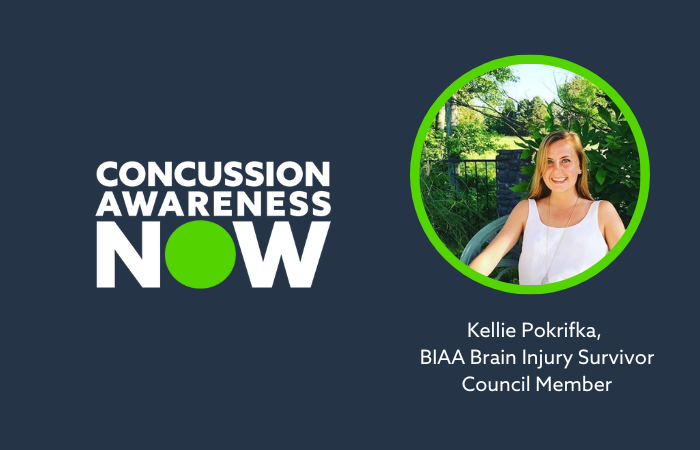This Concussion Awareness Day (September 15), it’s important to get the word out that concussion is a form of brain injury. All too often, people try to shake off their injuries, with more than half of people who suspect they have a concussion never even getting it checked out by a medical professional. And those are just the people who think they have a concussion – that doesn’t include people who have concussions and never suspect a thing.
A concussion can happen in a variety of ways, and symptoms can differ from person to person. Some people who suffer concussions may experience symptoms right away, while others might not have symptoms for hours or even days. And while symptoms may taper off in a matter of days or weeks, some people who have had a concussion have trouble recovering for weeks, months, and even years.
If you are having difficulties recovering from a concussion, know that you are not alone. Fortunately, there are doctors, medical professionals, and other researchers working to examine the symptoms people experience after getting a concussion, as well as why some people take longer to recover than others.
The University of Pittsburgh Medical Center (UPMC) developed the Concussion Clinical Trajectories: A Model for Understanding Assessment, Treatment, and Rehabilitation. These categories can help people living with a concussion better understand the symptoms they are experiencing after their injury; however, it is not uncommon for people to experience symptoms ranging from just one type of concussion to a mix of any or all six of the types of concussions identified.
What are the Concussion Clinical Trajectories?
UPMC has identified six “trajectories” or types of concussions:
- Cognitive/Fatigue
- Vestibular
- Ocular
- Post-traumatic Migraine
- Cervical
- Anxiety/Mood
Cognitive/ Fatigue Concussion
Cognition refers to thinking. Cognitive difficulties are any type of challenge a person might when it comes to their ability to think or focus after a brain injury. A cognitive/fatigue concussion can cause a person to have trouble with prolonged or complex mental tasks, complex subject matter, and long days. These concussions can also cause increased fatigue as the day goes on.
Symptoms of a cognitive/fatigue concussion can include:
- Decreased concentration
- Increased distractibility
- Trouble learning or retaining new information
- Decreased multitasking skills
Vestibular Concussion
The vestibular system is the “balance center” of the brain, and is responsible for deciphering motion. Impairments of the vestibular system can affect a person’s ability to interpret motion, coordinate head and eye movements, and steady or balance vision upon moving the head.
When this system is affected as a result of brain injury, it can lead to symptoms like:
- Nausea
- Dizziness
- Vertigo
- Difficulty balancing
- Trouble stabilizing vision when moving the head
Ocular Concussion
If there is an issue with your eyes, or the communication between your eyes and your brain, after brain injury, you may have an ocular concussion. This type of concussion can cause a person to have difficulty with visual tasks like reading long passages or looking at a computer or cell phone screen. Other symptoms of ocular concussion include:
- Eye strain
- Light sensitivity
- Trouble focusing
- Double vision
- Dizziness
- Difficulty with shifting gaze
- Poor depth perception
Post-Traumatic Migraine Concussion
Post-traumatic migraine is just one form of post-traumatic headache (PTH or PTHA.) Migraine and tension-type are the two most common types of PTH. Patients should also consider cervicogenic, musculoskeletal, neuralgic (especially occipital and trigeminal neuralgia), and Temporomandibular Joint Dysfunction (TMJD) types.
A post-traumatic migraine concussion can cause changes to a person’s normal routine, such as trouble sleeping or a tendency to avoid certain activities, such as concerts or sporting events. Common symptoms include:
- Headaches
- Nausea
- Sensitivity to noise or light
Cervical Concussion
Many times, a concussion does not happen in isolation. Other injuries can occur at the same time, especially within the neck. A neck injury can elicit the same types of symptoms as a brain injury, such as headaches, dizziness, and brain fog. Slouching or carrying a heavy backpack can make these symptoms worse.
Anxiety/ Mood Concussion
Mood disorders can occur following brain injury, with anxiety and depression being the most common. Mental health symptoms are just as valid as any other symptom of brain injury. Talk honestly with all of your care providers and loved ones about these symptoms. If you are having thoughts of suicide, reach out immediately and call 911 or the suicide hotline, 988.
One or more of these categories definitely apply to me. What now?
According to neuropsychologist Vanessa Fazio Sumrok, PhD, these trajectories each have specific treatment plans.
“It seems when many people hear ‘post-concussion syndrome,’ they assume the symptoms are chronic and will not resolve, which is quite demoralizing and leaves people feeling helpless. It’s important to note that most people with concussion recover and that most symptoms are treatable,” she explained.
Regardless of where you are in your brain injury journey, it’s important to always have hope for recovery.
